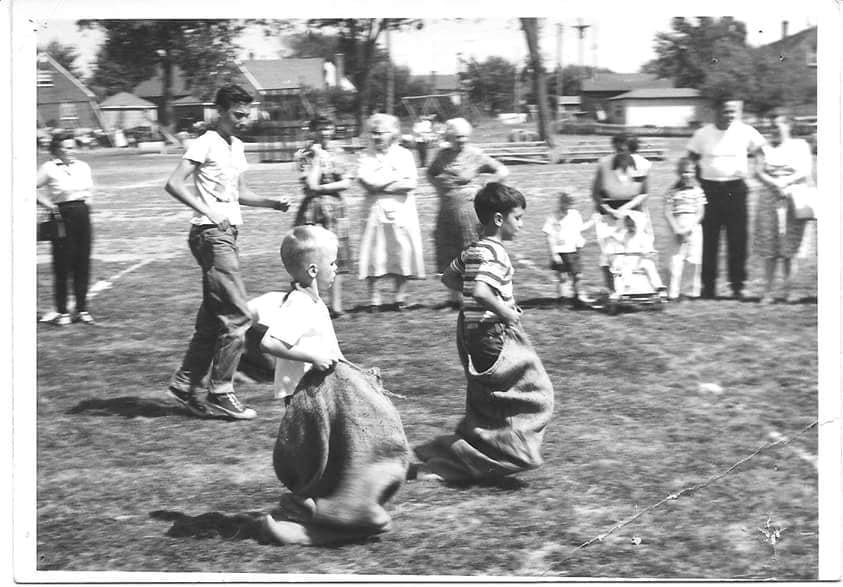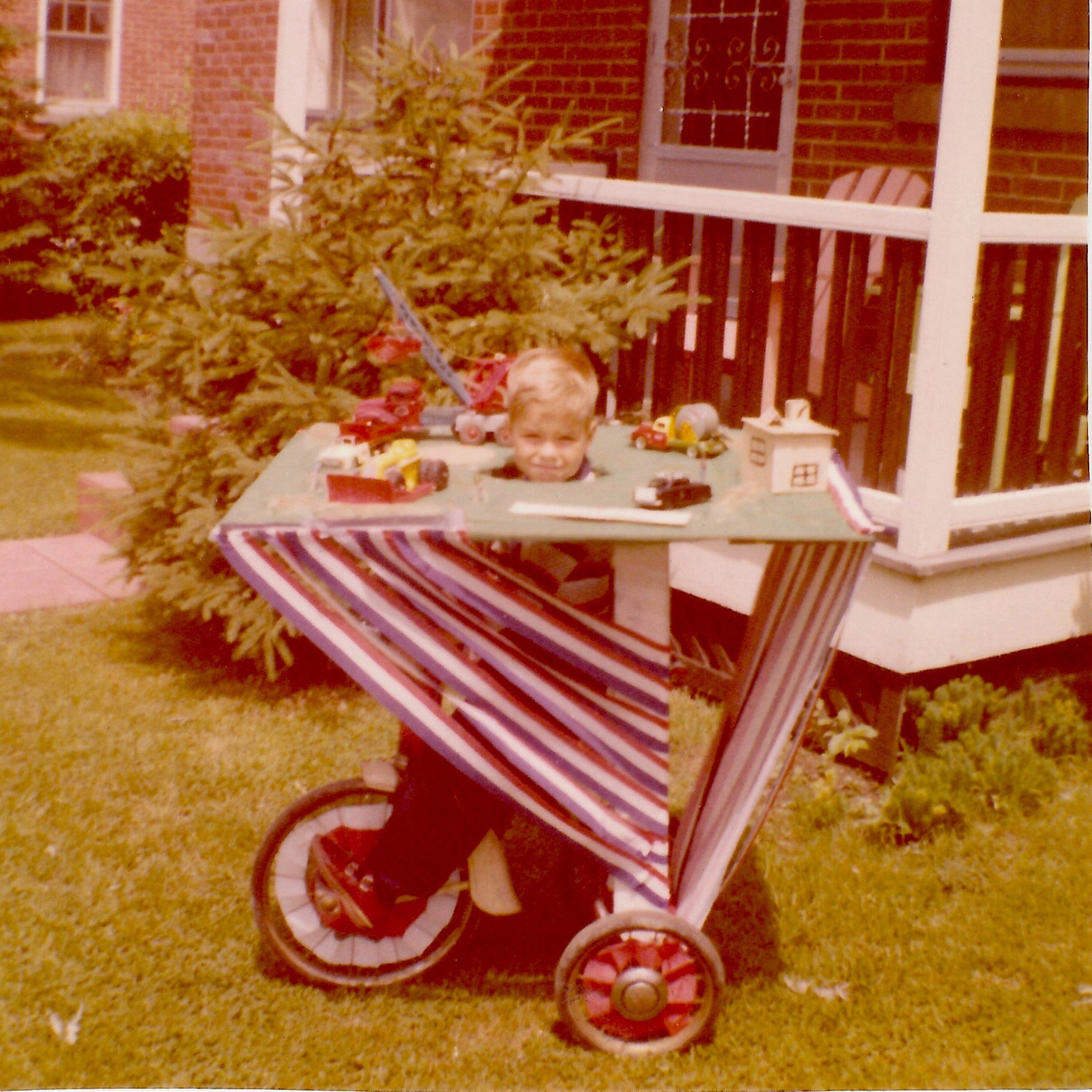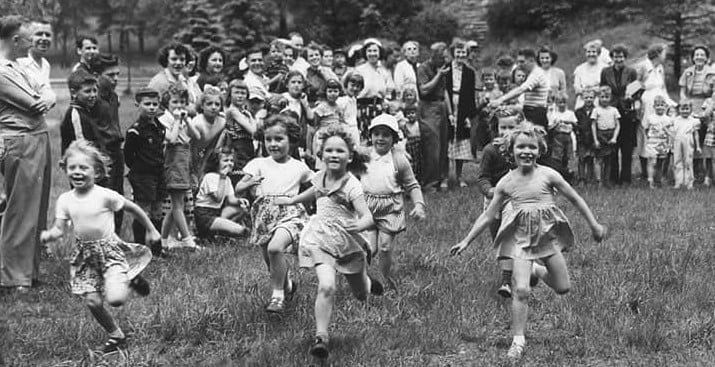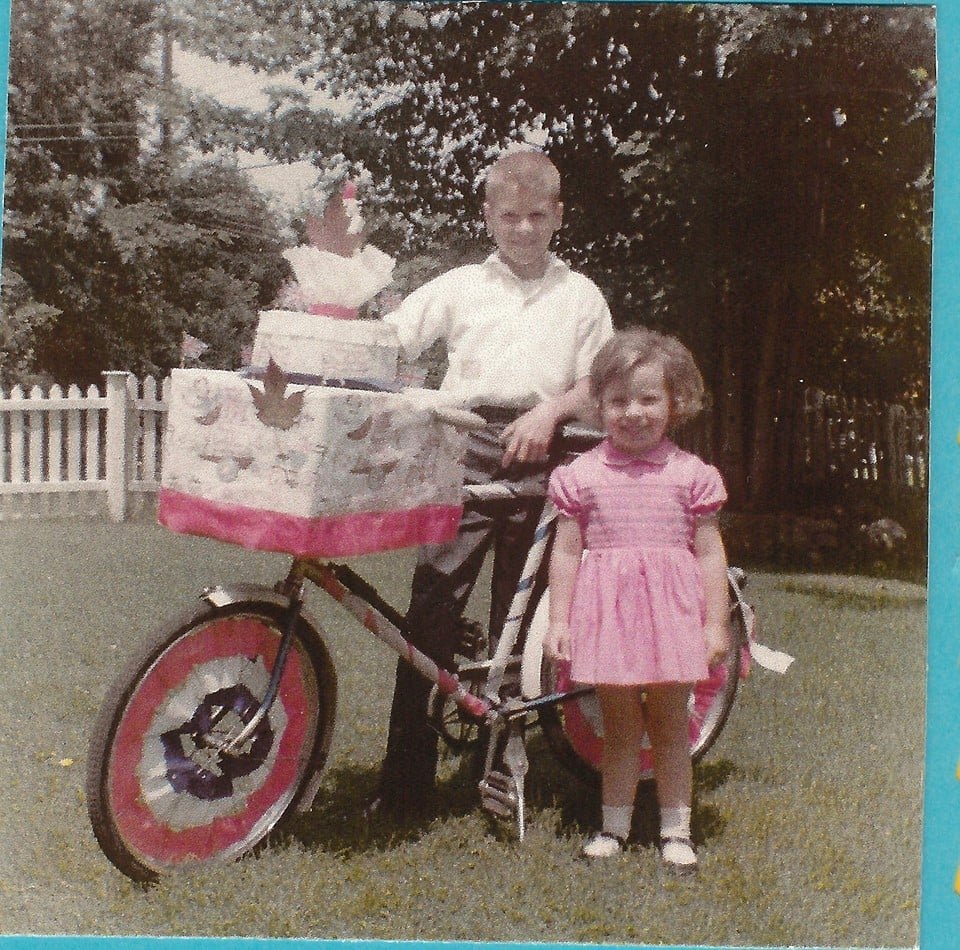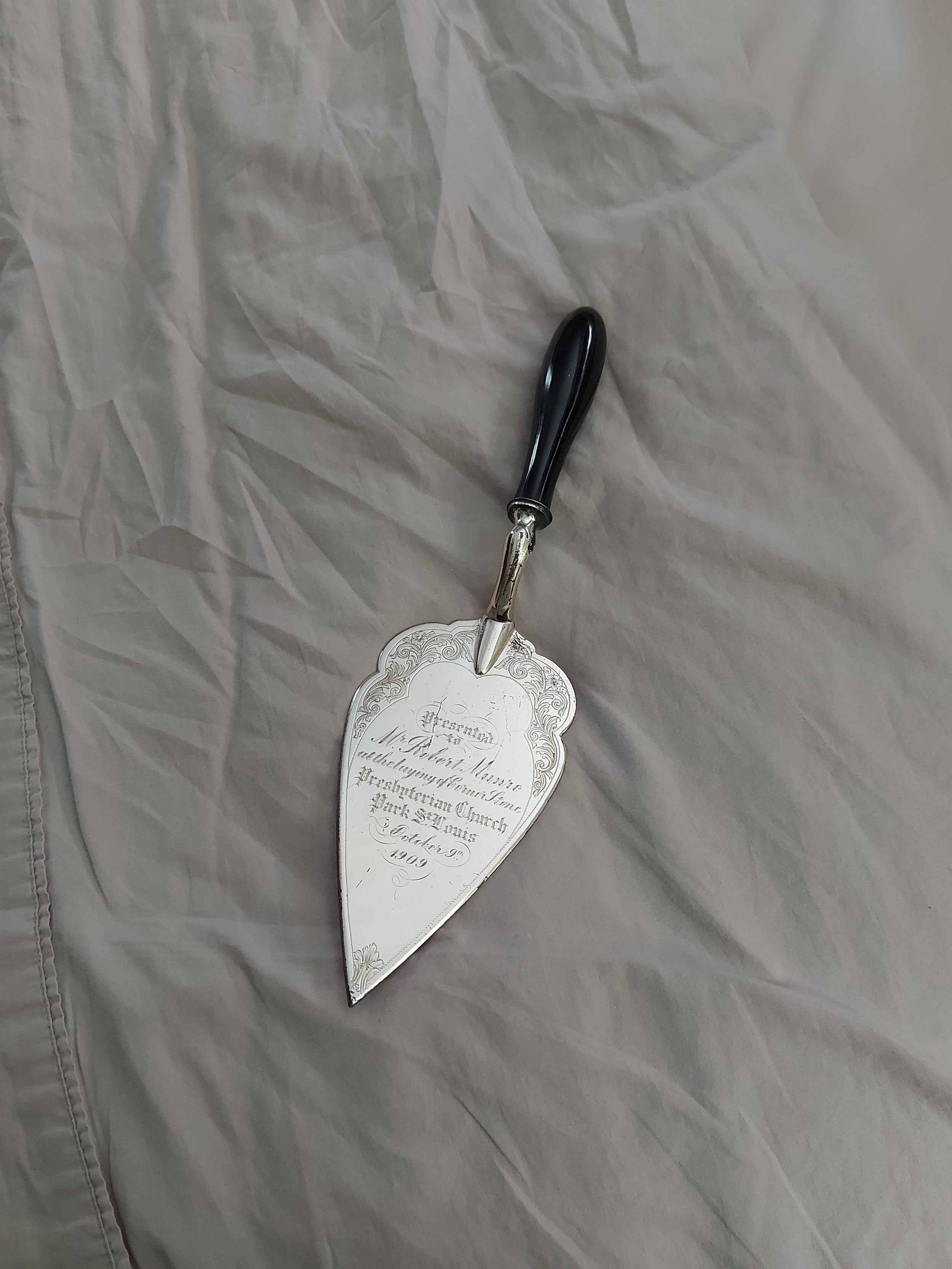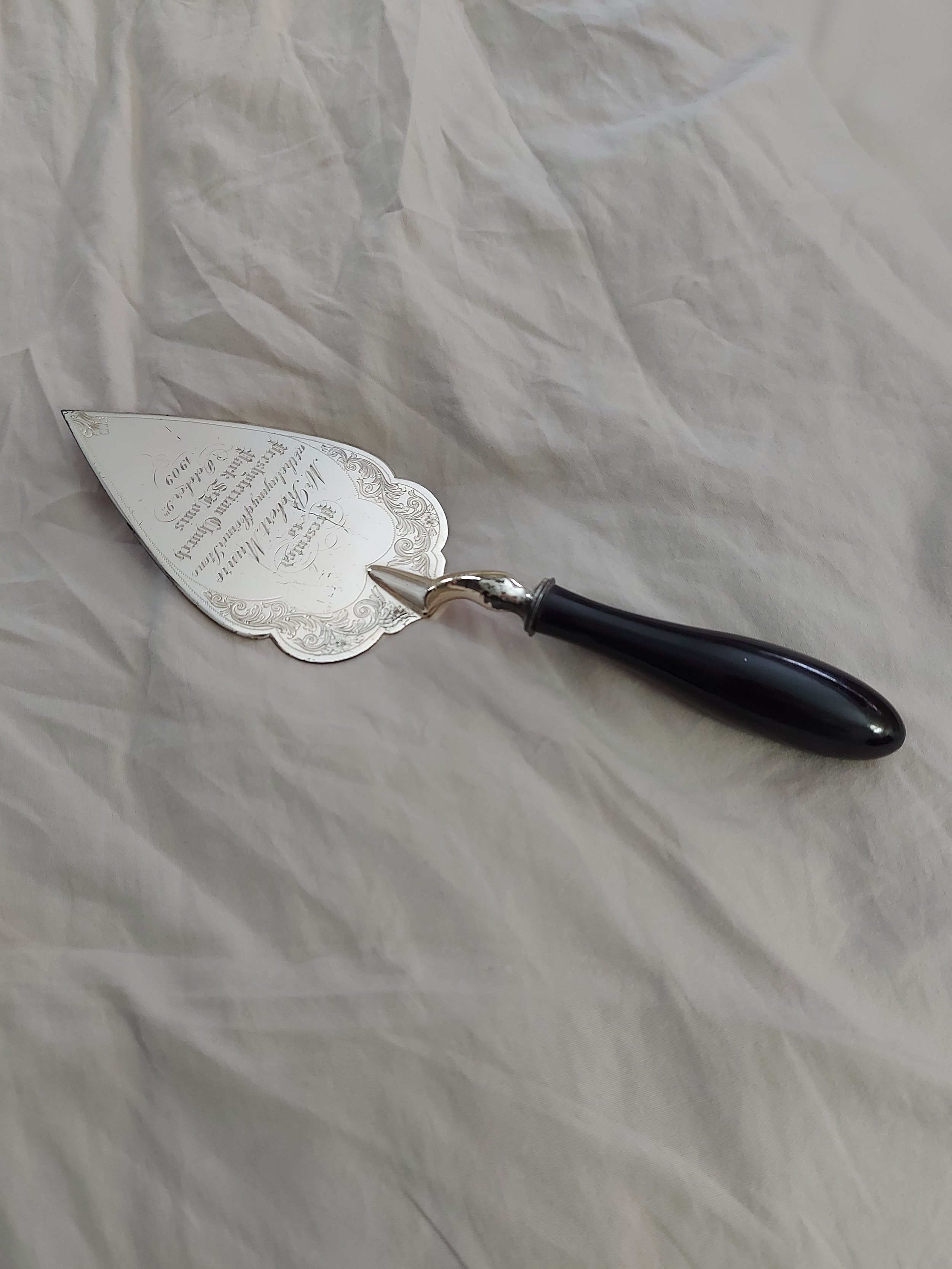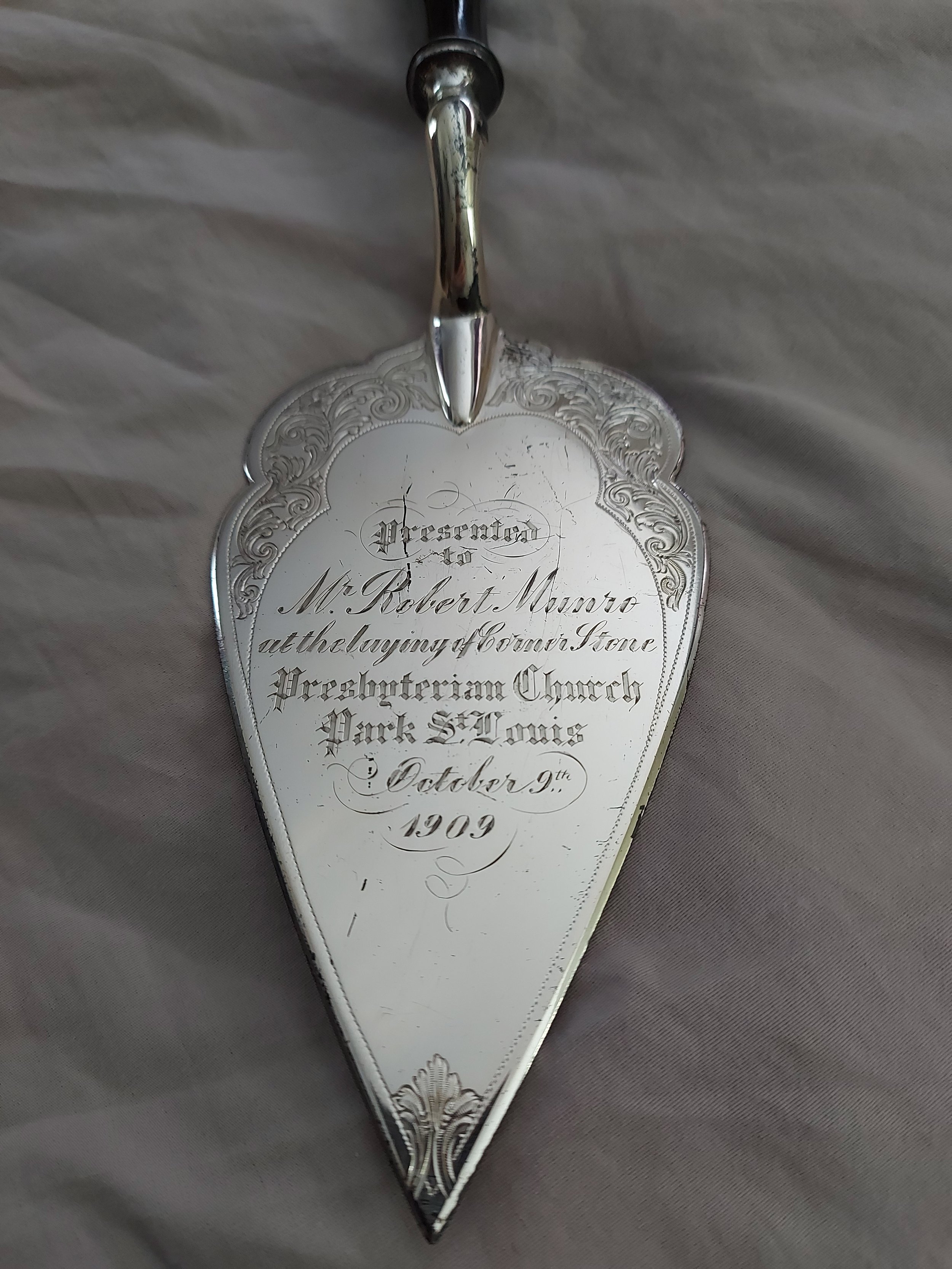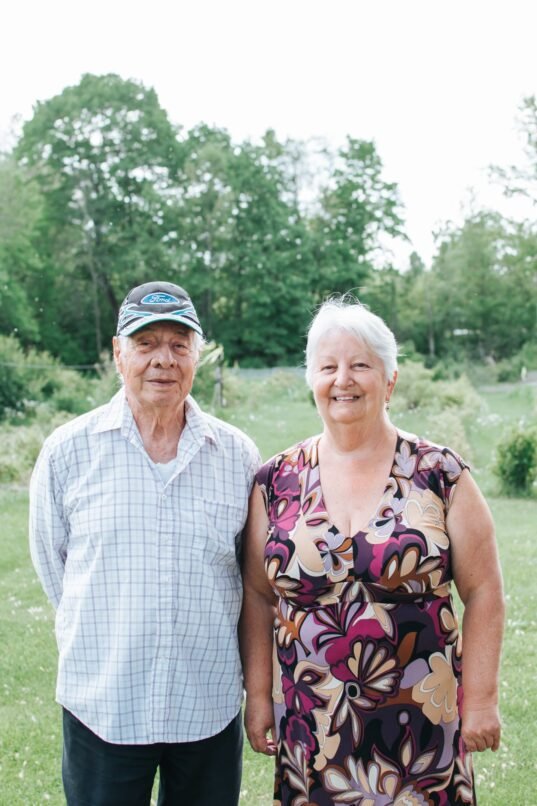
BLOG ..BLOGUE
News from SouthWest ..Des nouvelles du Sud-Ouest
Memories of Dominion Day from Crawford Park "Kids"
Liz Ludlow Collymore posted these pictures in the Crawford Park Kids (CPK) Facebook group and agreed to let us share them. She writes:
“Black and white photos courtesy of Liz Storey from her father’s collection (Len Storey), colour photos courtesy of Ken Goodland , and photo of Blue Skyliners courtesy of Sandy Sleeth Norman .
Always a perfect day from races in the morning; hot dog lunch served by Legion members with little paper hats; contests for best decorated bicycles, wagons and doll carriages; great evening entertainment from the Blue Sky Review featuring the Blue Skyliners; then topped off by a fireworks display before we went off to bed exhausted and sometimes sunburnt.”
Barry Archer, a member of the CPK group, posted a newspaper clipping he says is from 1959 or 1960, about one of those Legion Canada Days. It was written by Margaret Adcock, and it mentions that Alderman Bryce Mackasey “and his good wife” were the judges for the best-decorated bike, trike and doll carriage competition.
Just Stop.... and Breathe!
I begin with words from Luke 21: 25-26
25 “There will be signs in the sun, the moon, and the stars and on the earth distress among nations confused by the roaring of the sea and the waves. 26 People will faint from fear and foreboding of what is coming upon the world, for the powers of the heavens will be shaken. 27 Then they will see ‘the Son of Man coming in a cloud’ with power and great glory. 28 Now when these things begin to take place, stand up and raise your heads, because your redemption is drawing near.”
34 “Be on guard so that your hearts are not weighed down with dissipation and drunkenness and the worries of this life and that day does not catch you unexpectedly, 35 like a trap. For it will come upon all who live on the face of the whole earth. 36 Be alert at all times, praying that you may have the strength to escape all these things that will take place and to stand before the Son of Man.”
One of the more humbling things about getting older is realizing that you’ve started to embrace things you used to make fun of. Things like increasing the font size on your cell phone, taking longer to get up and down the stairs, and going to bed at 9:30.
Ten years ago, if you told me I would be doing meditation as a place to find quiet from all the noise in my own head, I would have laughed in your face.
When I started meditation, concentrating on breathing in and breathing out seemed absurd. After all, I have been doing just that all of my life – without having to give it a single thought.
But at this moment in time, as we try to catch our breath with all that in transpiring around the world and within our own congregation, I find myself becoming particularly interested in the word” breath” – in a Biblical sense.
I am bringing this up because there have been several times over the past week where anger has found me struggling to just breathe.
Most of you know that I am a “lectionary reflector” because, week after week, you sit patiently and listen to my thoughts on the readings prescribed for that Sunday. But, today, I am consumed with the opening apocalyptic thoughts which keep rolling through my head.
Apocalyptic writings tend to bring fear to most people. But did you know that their original intention was just the opposite? They were originally written to bring comfort and calm to those living in tumultuous times. To help them regulate their thoughts and, believe it or not, calm their anxious breathing.
The verses quoted in the opening are significant, not because we seem to be living in some apocalyptic times, but because of the way our breath can be slowed up or caught in our throats when we read them.
But breath has played an important part in our faith tradition. God breathed into dust to create human beings. Ezekiel was given the breath to breathe upon dried bones, bringing them dancing back to life. And, of course, how when Jesus died on the cross it was his last and final breath in which he gave up his spirit and then, locked in fear in the upper room, he breathed on his disciples and said “receive the Holy Spirit”.
So, in the opening text, when it says People will faint from fear and foreboding of what is coming upon the world, the following thought came to mind.
This passage is an exact description of how so may of us are feeling at this moment. We are breathing the life out of ourselves from fear and foreboding over what is to come. A future, over which we have little control - is turning us into people who can forget to breathe.
I am afraid of so many things…. being left alone, getting sick, the political climate, active shooter situations which are becoming more common right here in our own cities, my grandchildren making quick choices which might have lasting implications…. you name it. They all clamor for space in my head in the middle of the night.
But, in the moment of quiet breaths, none of those things (with the exception of shootings which I am just hearing has occurred at a 4th of July parade in Chicago) are happening at this moment of breathing in and breathing out.
So, I invite you, to consider what are you afraid of? I mean, really afraid of.
And to think – is any of that happening right now in this moment.
Whatever you fear, I want to give you this apocalyptic message – whatever your fears are – they may be real, but they are not the most real thing.
Now, I ask you to remember that Jesus said “do not be afraid…do not worry about what the future holds”, or do not miss out on what is most real in this moment. I believe Jesus was inviting us into what we now call mindfulness, inviting us to be present to our breath in the present moment because God is always present to us in the present moment.
But I am not a fool, I may still get sick, or my grandchildren might screw up in a way that forever changes their lives. Things may very well continue to get worse, especially for those who have the least amount of power in our current world.
And, faith doesn't mean that the bad things we fear won’t happen in the future, faith just means that in the midst of all of it, we have access to God in this moment and this breath. We get to slow down and see a hundred tiny beautiful gifts in every moment –things like the particular green of the leaves right now, the flowers blooming in the front yard, the sound of baby birds as they start to leave the nest and, yes, the taste of bread and wine which we shared last Sunday.
So, when the fear and foreboding of what may come starts to shorten your breath, try to concentrate on what is so much bigger – the goodness of God in the stories of our ancestors and a faith which has endured and prevailed.
And you can return over and over to this as many times as you need to - the knowledge that God is already present in the future you are worried about and none of the things you fear about the future are as real as this present moment.
This moment, as you sit reading, this is all we have. The air you are breathing right now, the room you are in right now, the people you are with right now. Here and now Christ is among us bringing peace. He is still breathing on us and saying receive the holy spirit.
Let not fear and foreboding keep us from breathing that in.
My meditation mantra is “God breathe in me the breath I breathe”. I share it with you and hope it will be calming.
Amen
Pastor Beryl
The inspiration for this week’s blog comes from Nadia Boltz-Weber (an ordained Lutheran Pastor, founder of House for All Sinners & Saints in Denver, CO) and Richard Rhor, OFM (an American Franciscan priest and writer on spirituality based in Albuquerque, New Mexico.) I have been following their writings for about nine years now. They may be a little “out there” for some Christians, but they tell it like it is, in a world and time which is in dire need of hearing some truths.
History Mystery
“This goes under the caption, ‘things I found in my basement,” says Aline. She is cleaning out the house that once belonged to her in-laws, and there is no telling what could turn up. Aline thought we would be interested to see this ceremonial trowel with the following inscription:
"Presented to Mr. Robert Munro at the laying of the church cornerstone, Presbyterian Church, Park St. Louis, October 9, 1909"
We believe that Park St-Louis is an old name for part of Lachine near the waterfront, but we have not been able to find a Presbyterian church that would have been established there in 1909. Aline doesn’t believe Robert Munro is any relation to her in-laws, so the provenance of the trowel is a mystery. Any feedback from those with longer memories would be welcomed!
Aline passed the trowel on to Douglas Hastie, knowing that his background was in Verdun’s First Presbyterian. Doug will pass it on to his brother in Ontario who will offer it to the Presbyterian museum.
Labour of Love: Kanesatake's Satewas Gabriel Translates Bible into Mohawk
[The following is from a Blog on the United Church Foundation site.]
“It’s like Joshua said,” Satewas laughed then recited: “Me and my family, we’ll work for the Lord.”
Satewas (Harvey Gabriel) is describing how the recently completed full translation of the Bible into Mohawk has been an intergenerational project for him, his wife Susan Gabriel, their daughter Cheryl Gabriel, and their granddaughter Taylor Daye. They’re all residents of the Mohawk community of Kanesatake, just west of Montreal.
Bringing the Book to Life
This family link in the story of the first complete translation of the Bible into Mohawk goes even further back in history – Satewas’ great grandfather, chief in Kanesatake and Methodist minister Sosé Onasakenrat, translated the four Gospels in the 1870s before his untimely death in 1881.
“I haven’t touched his translations,” says Satewas. “His version of the Gospels will be kept as he wrote them in the new Bible that we expect will be published in 2023.”
“A small group of women from Kahnawake knew that I was reading the lessons in Mohawk at Kanesatake United Church,” remembered Satewas, “They wanted to do some more translations and invited me to join them.”
Doris Montour, Josie Horn, and Charlotte Provencher, all teachers and Mohawk-speakers, challenged Satewas to try translating two chapters from 2 Corinthians.
“I was kind of shy about it,” he said, “but I got it done and really enjoyed it. Then I went on to the Book of Job and just kept going from there. I spent a year translating Genesis.”
In 2000, the Canadian Bible Society’s (CBS) Montreal office contracted with Satewas to complete a full translation and provided access to biblical scholars to assist him. Satewas had opted for what they called a “classic” translation – a word for word translation – and not a paraphrase of the original texts.
While he was working on the Mohawk Bible, Satewas also wrote a comprehensive Mohawk – English dictionary and several collections of stories and historical sketches about his people, his language, and his community. But in 2011, financial pressures brought support from the CBS to an end.
“Every time we finished a book, it would go onto a shelf and then they just sat there,” said Satewas. “There it was – out in the open and going nowhere.”
With a Little Help from My Friends
In 2019, Susan Gabriel decided she would try to relaunch the project. She applied to the United Church of Canada Foundation for a grant, an application that was received and approved with great enthusiasm.
“That got us going again and CBS (Toronto) renewed its support too as a result,” explained Susan. “The Band Council here at Kanesatake also came onside. They’ve invested a staff position and a half to help us complete the translation.”
Leaders in their community recognize that the new Mohawk Bible will be an important resource for the survival and growth of the Mohawk language.
“Every word you’ll ever need is in the Bible,” Susan smiled. “This will be a major piece of literature for all Mohawk people as well as for those who want to learn our language, whether they’re religious or not.”
“I would have lost my language”
Over a cup of coffee in the Gabriels’ kitchen, Satewas reflected on how fragile First Nations’ languages are.
“My mother was sent to a residential school in Sault Ste. Marie from age five to fourteen,” he said. “The children weren’t allowed to use their own language in class. But her older sister was with her at that school and so were two boys from Kanesatake and they’d meet outside on the playground every day and only talk Mohawk together. That’s how she kept her language.”
Satewas learned Mohawk from her and first read her grandfather Sosé’s translation of the Gospels by her side.
“Without her deciding to speak Mohawk as a child, I would have lost my language,” he said. “Your identity doesn’t come from some flag you fly – it comes from the words that you speak out of your mouth.”
And thanks to those schoolyard conversations in Sault Ste Marie, we at the United Church of Canada Foundation are looking forward with joy and gratitude to the publication of the first complete Mohawk Bible.
-as told to Royal Orr
Satewas (Harvey Gabriel) and Susan Gabriel
Support for Tenants
The Mayor of Verdun, Marie-Andree Mauger, shared the following on Facebook:
“As July 1 is approaching, some Montrealers are still looking for housing. If this is your case, contact 311 by phone. The City offers several resources to support you:
Temporary storage of certain goods
Support in finding accommodation
Temporary accommodation in case of emergency
Help desk to answer your questions”
Mme. Mauger also reminds landlords that short-term Air BnB-type rentals are not allowed in Verdun. This is to keep more properties available for long-term (1 year or more) leases.
